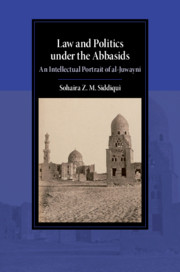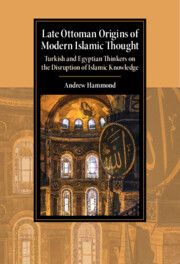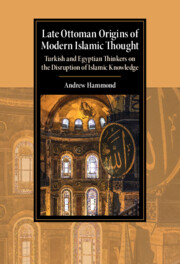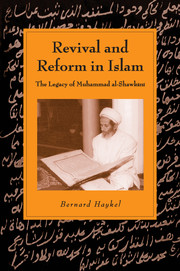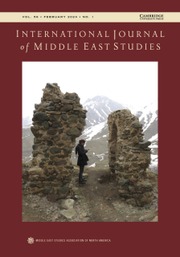Law and Politics under the Abbasids
Abu Ma'ali al-Juwayni (d.478/1085) lived in a politically tumultuous period. The rise of powerful dynastic families forced the Abbasid Caliph into a position of titular power, and created instability. He also witnessed intellectual upheavals living amidst great theological and legal diversity. Collectively, these experiences led him to consider questions of religious certainty and social and political continuity. He noted that if political elites are constantly changing, paralleled with shifting intellectual allegiances, what ensures the continuity of religion? He concluded that continuity of society is contingent upon knowledge and practice of the Shari'a. Here, Sohaira Siddiqui explores how scholars grappled with questions of human reason and knowledge, and how their answers to these questions often led them to challenge dominant ideas of what the Shari'a is. By doing this, she highlights the interconnections between al-Juwayni's discussions on theology, law and politics, and the socio-political intellectual landscapes that forged them.
- Adopts an interdisciplinary approach to Islamic studies, revealing connections between theology, law and politics
- Challenges the notion of al-Juwayni being a prototypical Ash'ari theologian and Shafi'i jurist
- Shows that Islamic political thought was not solely focused on the power of the imam
- Provides a new way for conceptualizing the Shari'a in varying social and political circumstances
Reviews & endorsements
'Sohaira Siddiqui has written a cogent and important study of the towering figure of Imam al-Haramayn al-Juwayni, one of the most significant scholars of the 5th/11th century. Siddiqui insightfully explores al-Juwayni's intellectual legacy placing him within his proper historical milieu and in doing so, she has produced a study that is required reading for all students of Islamic theology and law. Notably, Siddiqui's measured argument that al-Juwayni conceived of Shari'ah as a dialectical nomos warrants careful consideration. Ultimately, one cannot but feel grateful for this refreshingly rich contribution to Islamic studies.' Khaled Abou El Fadl, UCLA School of Law
'In this book, Sohaira Siddiqui provides us with an insightful, meticulously-researched, and comprehensive account of the life and thought of al-Juwayni, one of the most influential Muslim thinkers of the pre-modern period. Her sophisticated analysis and careful contextualization of al-Juwayni's oeuvre will be greatly appreciated by all those who deal with Islamic intellectual history and juridical thought. This book is guaranteed to remain the definitive work on the subject for a long time to come.' Asma Afsaruddin, Indiana University, Bloomington
'Siddiqui's first monograph is a seminal contribution and a tremendous achievement that serves as an exemplary intellectual biography and sets the standard for interdisciplinary analysis, meticulous research, intellectual coherence, and engaging prose.' Mariam Sheibani, Journal of Near Eastern Studies
Product details
April 2019Hardback
9781108496780
326 pages
234 × 156 × 21 mm
0.59kg
Available
Table of Contents
- Introduction
- Part I. Historical Background:
- 1. Politics, patronage, and scholarship in Nishapur
- 2. Al-Juwaynī: life of a scholar
- Part II. Epistemology:
- 3. Intellectual fissures: the Ashʿarīs and the Muʿtazila
- 4. The epistemology of al-Juwaynī
- Part III. Legal Theory:
- 5. Certainty in legal sources: Hòadīth
- 6. Certainty in legal sources: Ijmāʿ
- 7. The rise of legal uncertainty: Qiyās al-Maʿnā
- 8. Coping with legal uncertainty: Qiyās al-Shabah
- Part IV. Political Thought:
- 9. The search for continuity: al-Juwaynī's political thought
- 10. Continuity, custom, and applied epistemology in al-Juwaynī's political thought
- Conclusion.

